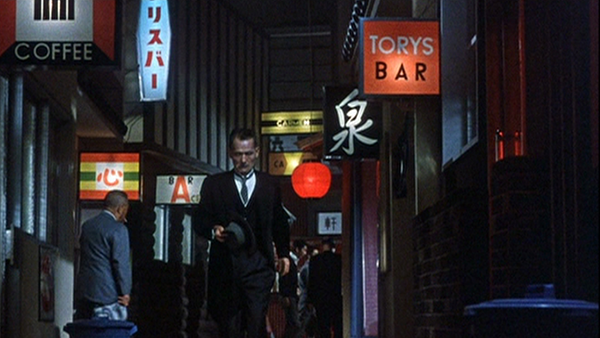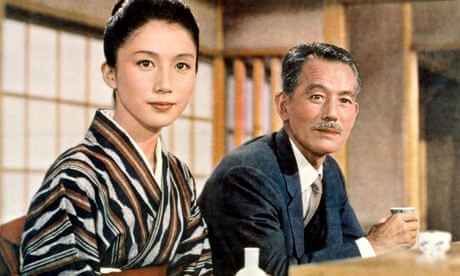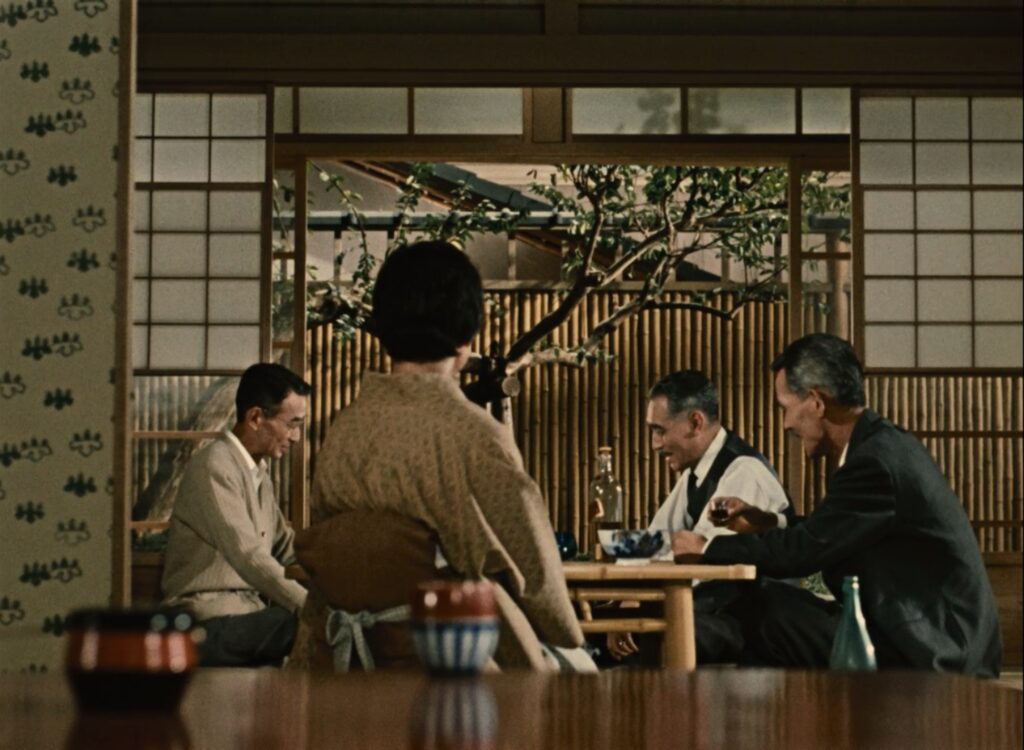| Dan Howard |

An Autumn Afternoon plays on glorious 35mm at the Trylon Cinema from Friday, December 27th, through Sunday, December 29th. Visit trylon.org for tickets and more information.
By the start of 1962, Yasujirō Ozu had already directed a staggering 53 feature films that spanned a 33-year journey. With classics like Tokyo Story (1953) and Floating Weeds (1959) to lesser-known gems like The Munekata Sisters (1950), the deeper you dive into Ozu’s cinematic world, the more you see the recurring themes in his work such as family, marriage, love, and war veterans. So much so that it can feel like Ozu keeps making the same film again and again. One begins to think, “Wait. Haven’t I seen this one already?” Odds are that you have. Ozu prided himself in choosing storylines from his previous films and reworking them into a new script, with good purpose, and his 54th and final masterpiece is no stranger to this tactic.
An Autumn Afternoon follows Shūhei Hirayama (Chisū Ryū) as he’s cared for by his daughter, Michiko (Shima Iwashita), after his wife has passed away. When Shūhei’s friend, Shuzo Kawai (Nobuo Nakamura) approaches him with a marital prospect for Michiko, Shūhei is hesitant, and Kawai warns against waiting too long for Michiko to marry. Shūhei brushes him off until the night they reunite with a former middle school teacher, Seitaro Sakuma (Eijiro Tono), nicknamed “The Gourd,” and sees how Seitaro’s daughter, Tomoko (Haruko Sugimura) lives as she takes care of her father after her mother passed. Shūhei begins to reconsider the marriage proposal and works with his eldest married son, Koichi (Keiji Sada) to find a suitable husband for Michiko.

Sounds like a concept he’s tackled before, right? However, the thing with Ozu was that he thought of himself as a craftsman and even considered his filmmaking comparable to “making tofu.” Ozu would work with his co-writer and frequent collaborator, Kogo Nada, to deconstruct their previous works to incorporate them into a new story. Ozu would also reuse characters’ names, and sometimes even cast the same actors. Chizū Ryū, for example, appeared in an impressive 52 of the 54 films Ozu directed. In efforts like these is where Ozu’s comparison of “tofu” comes in, striving for perfection through repetition. His brilliance comes from his constant drive to improve on what he had created before, and this method of reconstruction is perfectly encapsulated in An Autumn Afternoon.
So, why so many films about these things like marriage, family, and war vets? Since Japanese society is known to be quite focused on matrimony, one wonders where Ozu stood on the subject, seeing that he was never married himself. Many of his films explore the dichotomy of subjects like marriage where some women are happy that they got married and others experience melancholy. We even see a brief side plot about this in the film with Koichi and his wife, Akiko (Mariko Okada), witnessing the ups and downs of their marriage which stems from Koichi wanting golf clubs, a dynamic that no doubt influences Michiko’s thoughts on marriage for herself. Since An Autumn Afternoon was the first film Ozu made since the passing of his mother, whom he lived with until the day she died in 1961, a slightly mournful tonality blends into the film and becomes more apparent at the end. I feel it’s safe to assume a sadness weighed heavy on Ozu as a result of his mother’s absence. For instance, we see how lonely Shūhei is spending the first night without his daughter. Some aspects of his films like Tokyo Story give indication of how Ozu must have felt when his five brothers and sisters moved away from their parents and left him to be the caretaker of their mother. Yet, family remained important to Ozu until the end.

With his later films, I feel like Ozu gave himself the time needed for an honest and sometimes nostalgic introspection on his own life. We see how he values family. When it came to war, Ozu was no stranger to its horrors. While the only known bits of information on Ozu’s role during World War II were that he was drafted as a solider in China in 1937 and a propaganda filmmaker in Singapore in 1943, he made his feelings toward the war well understood when he destroyed all traces of his propaganda films and refused to be seen as a war criminal. Ozu’s postwar films tackle Japan as a colonial power and are vague in detail about things such as bomb shelters, battlefields, slave labor, and time spent in other countries. Ultimately, I feel Ozu summed up his feelings about the war perfectly with Shūhei claiming “It’s good that we lost” when spending time with a former soldier friend who had been under his command. After losing countless lives in World War II, safely assuming a lot of them were Shūhei’s/Ozu’s friends who died too young, no doubt Ozu had a new outlook on how precious life is. Uncertain times can put things into perspective and get one thinking about things like marriage, family, and stability. Shūhei understandably wants the same for Michiko. Ozu displays a similar kind of gratitude mixed in amongst the other emotions of An Autumn Afternoon, another example of the dichotomy of life that Ozu had mastered so well.

How could one possibly conclude such a prolific career like the one Ozu had obtained? Like many other filmmakers, he didn’t seem to really think about a definitive “end.” After all, Ozu didn’t know he had throat cancer after the filming of An Autumn Afternoon was completed. He had written the next film, Radishes and Carrots, which was another story about a daughter getting married, except one of the parents having cancer, but never got to make it. Yasujirō Ozu passed away on his 60th birthday, December 12, 1963. Perhaps the repeated giving away of the daughter to marriage was, in a sense, his way of giving his films to the masses. Every bit of heart and soul he gave into creating his works, he wanted to share with the world. Though he didn’t plan it to be his last, An Autumn Afternoon is the perfect film to end an iconic filmmaking legacy. This legacy that continues to move us in the deepest and most profound ways.
Edited by Olga Tchepikova-Treon
